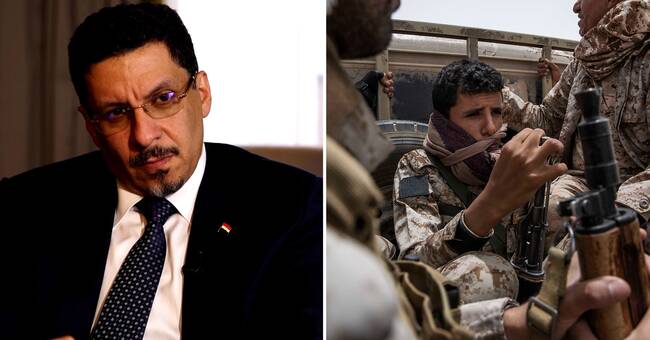It was in the winter of 2018 that Sweden had succeeded in the unthinkable - to get both parties in the Yemeni war at one and the same table to hold peace talks.
On the one hand, the internationally recognized, and militarily Saudi-backed, Yemeni government, and on the other hand, the Huthi rebels, backed by Iran.
- It is still the largest agreement that exists between the parties, says Foreign Minister Ann Linde (S) to SVT Nyheter, after she met her Yemeni colleague.
In a two-and-a-half-hour meeting, the humanitarian crisis and the political deadlocks were discussed in detail, Ann Linde says.
Worse than before
The Stockholm Agreement, as the result of the 2018 talks is called, focused on three main points;
ceasefire in the important port city of Hodeidah and in the city of Taiz, humanitarian corridors, and prisoner exchanges.
It was historic for the conflict and many hoped it would lead to peace.
"Unfortunately, it is worse than before on all three points," Yemen's Foreign Minister Ahmad bin Mubarak told SVT News at a hotel in Stockholm.
According to the Yemeni Foreign Minister, what is going on in the country is not a proxy war between Saudi Arabia and Iran, as it has been called, but an internal conflict.
- The most important thing is that we get all parties to the negotiating table again.
Yemen needs peace first and foremost.
One of the problems last time was that there were no guarantees if you did not fulfill your part of the agreement, says Ahmad bin Mubarak.
According to him, the Huthis have not kept their part of the promise.
"Extremely a political issue"
According to Ann Linde, the situation now is that the Huthi rebels believe they can win the conflict militarily and are referring to the battles over the city of Marib.
- We would like to see further meetings, but it is ultimately a question of political will and that you can persuade the parties that there must be a political one.
The situation now is that the Huthis believe that they can achieve military success.
If they take Marib, they have basically all the control in northern Yemen, says Ann Linde.
According to the Swedish Foreign Minister, Saudi Arabia has clearly signaled that they are seeking a way out of the conflict.
The same applies to surrounding countries such as Oman but also the United States.
- We have on several occasions asked Iran to use its influence over the Huthis to agree to a political solution, says Ann Linde.

